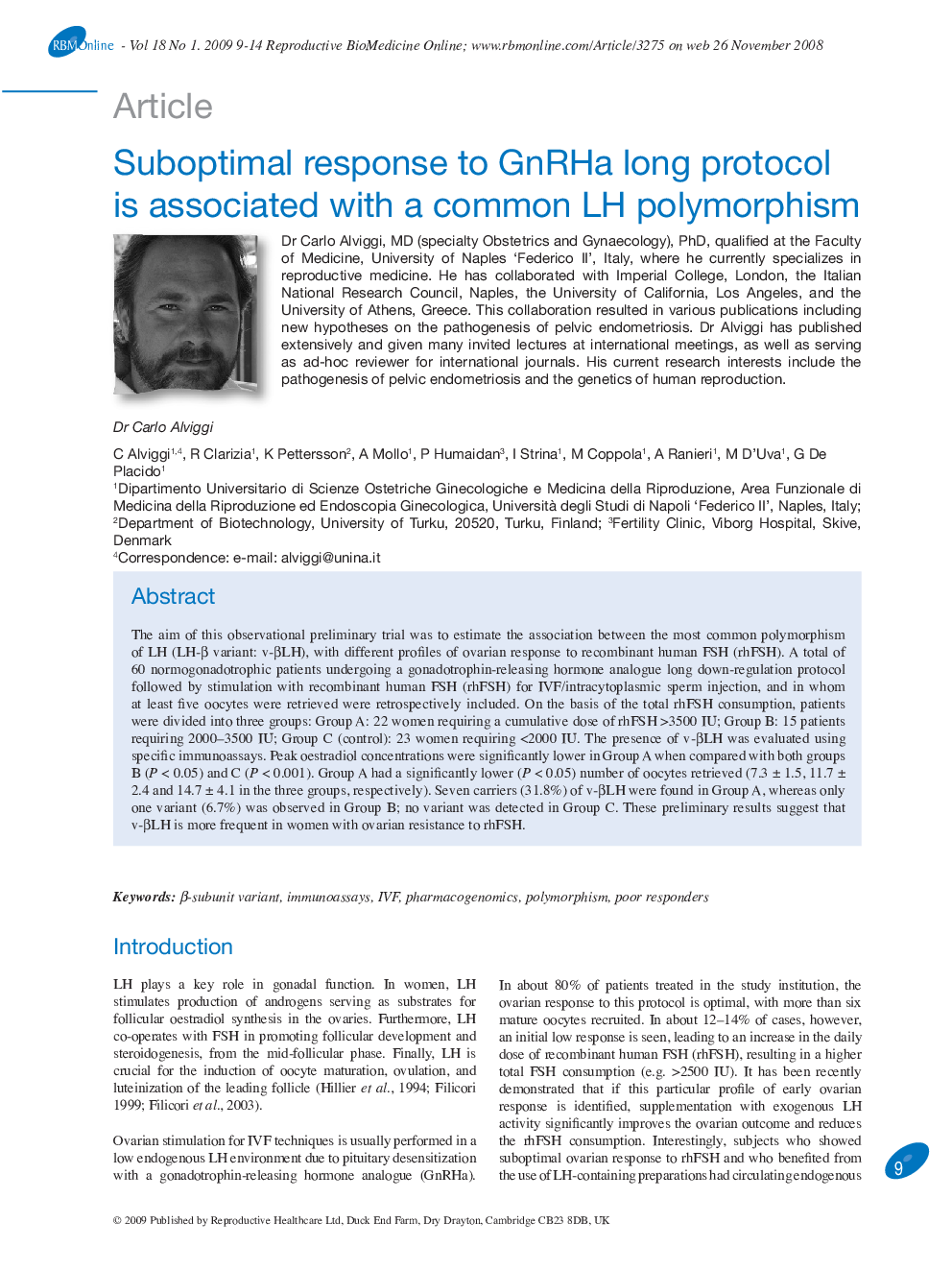| Article ID | Journal | Published Year | Pages | File Type |
|---|---|---|---|---|
| 3972272 | Reproductive BioMedicine Online | 2009 | 6 Pages |
The aim of this observational preliminary trial was to estimate the association between the most common polymorphism of LH (LH-β variant: v-βLH), with different profiles of ovarian response to recombinant human FSH (rhFSH). A total of 60 normogonadotrophic patients undergoing a gonadotrophin-releasing hormone analogue long down-regulation protocol followed by stimulation with recombinant human FSH (rhFSH) for IVF/intracytoplasmic sperm injection, and in whom at least five oocytes were retrieved were retrospectively included. On the basis of the total rhFSH consumption, patients were divided into three groups: Group A: 22 women requiring a cumulative dose of rhFSH >3500 IU; Group B: 15 patients requiring 2000–3500 IU; Group C (control): 23 women requiring <2000 IU. The presence of v-βLH was evaluated using specific immunoassays. Peak oestradiol concentrations were significantly lower in Group A when compared with both groups B (P< 0.05) and C (P< 0.001). Group A had a significantly lower (P< 0.05) number of oocytes retrieved (7.3 ± 1.5, 11.7 ± 2.4 and 14.7 ± 4.1 in the three groups, respectively). Seven carriers (31.8%) of v-βLH were found in Group A, whereas only one variant (6.7%) was observed in Group B; no variant was detected in Group C. These preliminary results suggest that v-βLH is more frequent in women with ovarian resistance to rhFSH.
